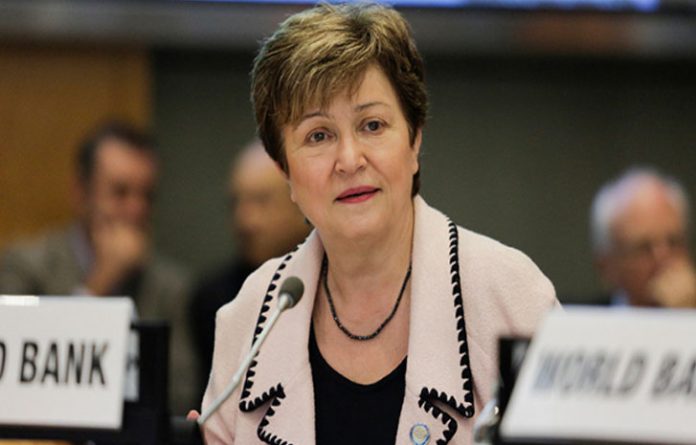International Monetary Fund (IMF) has said emerging and developing countries like Nigeria would record a massive drop in per capital income in 2022 up to 20 per cent as a result of diverging dangerous impact of COVID-19 crisis, compared to pre-crisis projections, cutting one-fifth of what is already a much smaller per capita income than in richer countries.
“This loss of income means millions of people will face destitution, homelessness, and hunger,” IMF managing director, Kristalina Georgieva said in a pre-IMF/World Bank spring meeting webcast yesterday.
Georgieva however said there is a potential vaccine enabled growth in global economy above the 5.5 per cent earlier projected for 2021, a growth she said would be powered by two engines—the US and China.
She said there could also be more pressure coming to vulnerable emerging market, low-income and fragile states. Countries like Nigeria already have more limited fiscal firepower to fight the crisis. And many are highly exposed to hard-hit sectors, such as tourism.
Now they face less access to vaccines and even less room in their budgets. And some are already at high risk of debt distress in sovereign, corporate, or banking sectors.
The view is that this would pose major challenges especially to middle-income countries with large external financing needs and elevated debt levels. Many of those countries will need more support.
“Return to growth would also mean policy transition, and the need to deal with the long-term scars of this crisis—among them is the impact on human capital, especially on the young, the low-skilled, women, and informal workers.
“Allowing those scars to persist will result in lower growth potential—making it even more difficult to increase employment and reduce inequality,” the IMF MD said.
The way out according to her is for countries that fall in that category to keep focus on escaping the crisis. “We must follow the example of the scientists by stepping up cross-border efforts, by doing whatever it takes to ramp up vaccine production, distribution, and deployment.
“Policies, of course, must be tailored to country-specific needs—their pandemic exposure as well as economic factors,” she said.
The harsh reality is that poorer nations are at risk of missing out on what is a historic transformation to a new global economy built on green and digital foundations.
New IMF research that was released yesterday — shows that low-income countries have to deploy some $200 billion over five years just to fight the pandemic. And then another $250 billion to return to the path of catching up to higher income levels.


